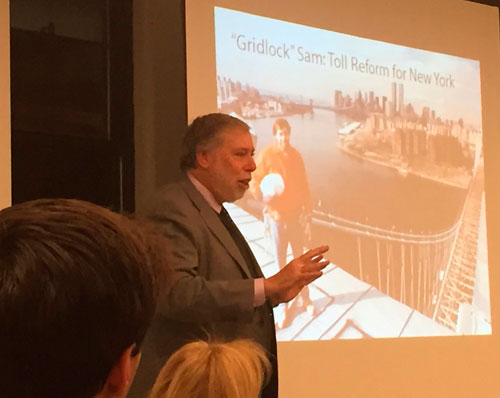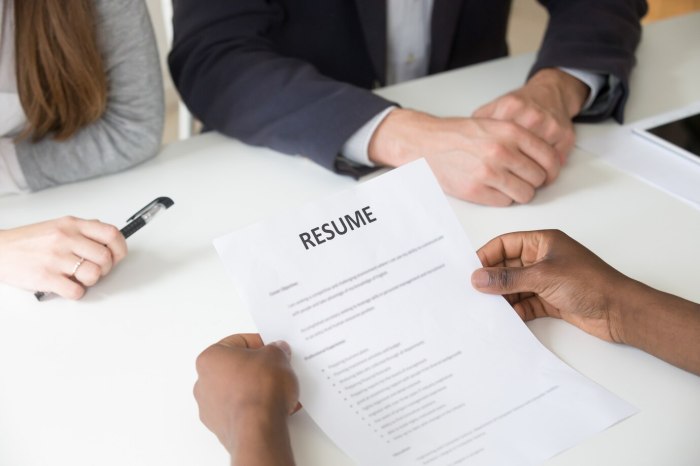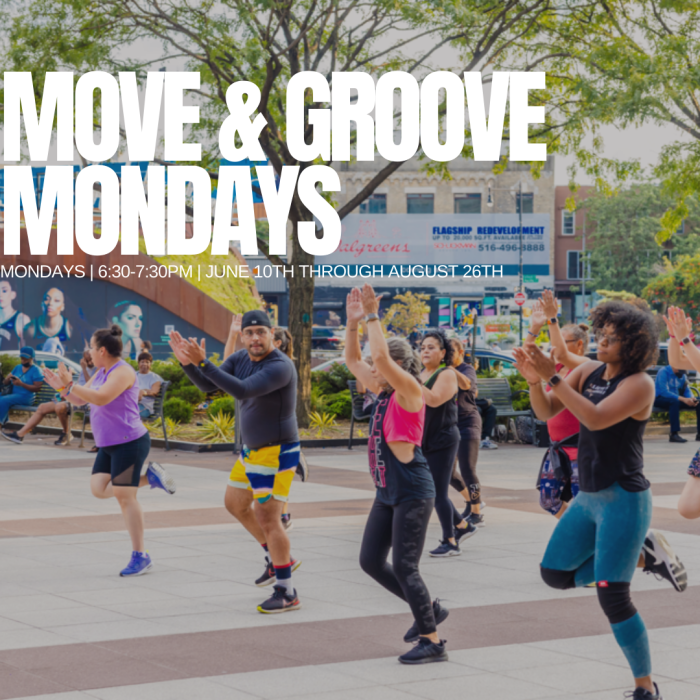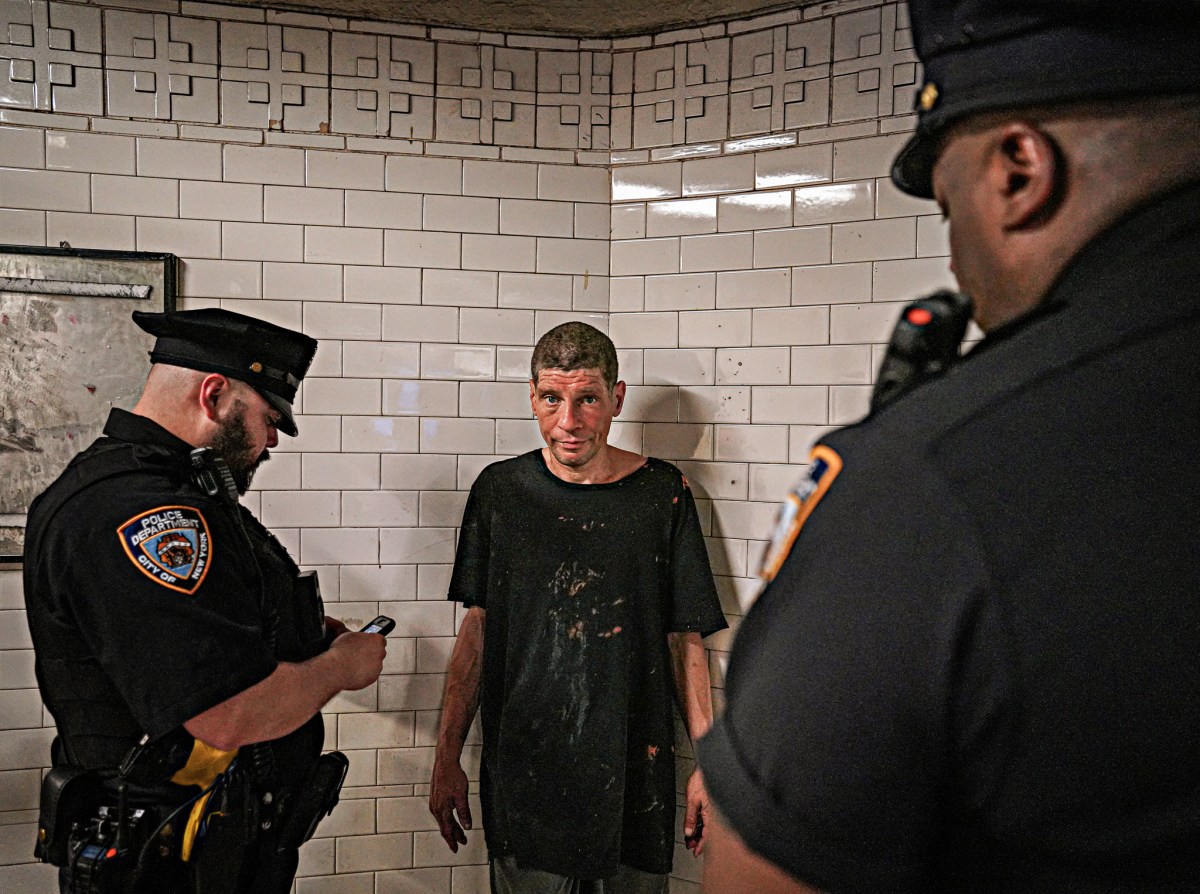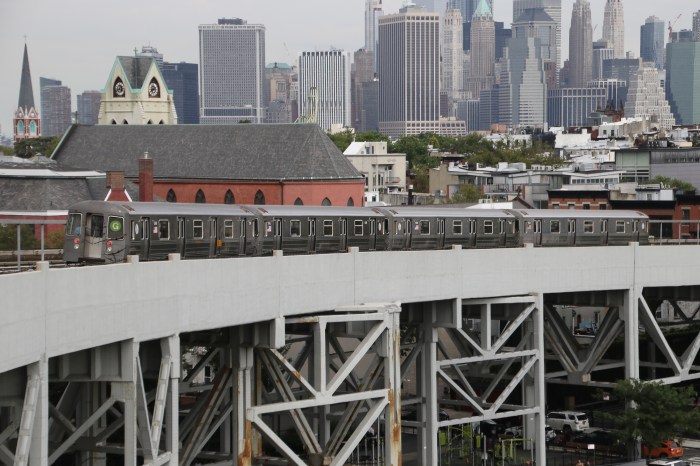A plan to put tolls on all bridges and tunnels and drop existing ones could help ease Brooklyn traffic, a respected traffic guru said this week.
The scheme, devised by former Department of Transportation deputy commissioner Sam Schwartz, also known as Gridlock Sam, with the advocacy group Move NY, would levy new tolls on the free East River crossings and decrease existing tolls by $2.50. One goal is encouraging drivers to use the bridges and tunnels that are better connected to the highway system.
The current pricing policy does the opposite, Schwartz said on Feb. 19 at a town hall meeting in Downtown’s YWCA.
“Our policy is to encourage people to leave the highways and go on city streets,” he said.
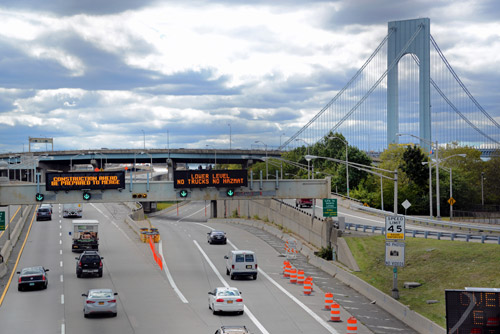
Keeping cars and trucks on the highways is a safety issue, he said.
“On a highway, you do not hit pedestrians. On city streets, you do,” Schwartz said.
Another aim of the new pricing structure is the $14-billion hole in the Metropolitan Transportation Authority’s $32-billion four-year capital budget, a problem Assemblyman Jim Brennan (D–Park Slope) calls dire.
“We have a mass-transit funding crisis,” he said at the meeting, noting that Albany could authorize the transit agency to borrow money, but that would drive up subway and bus fares.
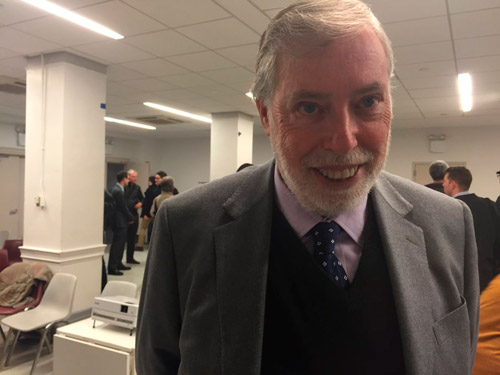
The plan would supposedly increase revenue by rejiggering the current tolling system, which Schwartz calls happenstance, and also streamline the way traffic moves around the city, he said.
The current toll structure charges more for bridges and tunnels that lack alternative modes of transportation, such as the Verrazano-Narrows Bridge, which currently costs $10.66 for E-ZPass users, while giving drivers a free ride over spans that are near mass transit, such as the Brooklyn Bridge.
The proposal calls for charging drivers traveling over the Brooklyn, Manhattan, and Williamsburg bridges $5.54 each way with E-ZPass, while reducing the toll by $2.50 on the crossings that currently charge. It also prescribes fees for motorists traveling in Manhattan below 60th Street.
Assemblywoman Jo Anne Simon (D–Brooklyn Heights) said avoiding the toll at the Brooklyn-Battery Tunnel was a habit she picked up as soon as she moved to the borough in 1981, and that everyone else does the same thing.
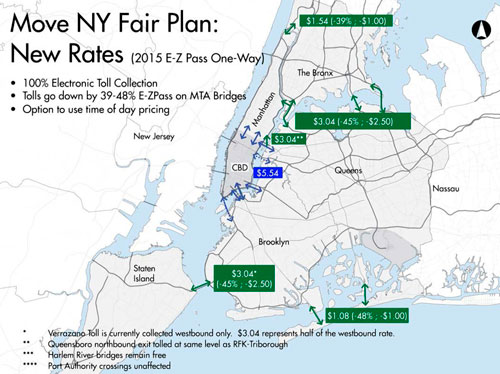
“One of the first things I learned was don’t take the Battery Tunnel because it’s free to go over the Brooklyn Bridge,” she said at the meeting. “The bridges have created these wonky traffic patterns all around avoiding a toll.”
She added that 50 percent of the traffic Downtown is through traffic, and that it should not be so.
Many civic activists were in attendance, as well as members of three community boards, and some of the area’s business alliances. Their involvement does not amount to an endorsement, but it means they are all interested in the issue, a leader of a community group said.
“It’s indicative of how seriously people perceive the challenge,” said Gib Veconi, from the Prospect Heights Neighborhood Development Council.
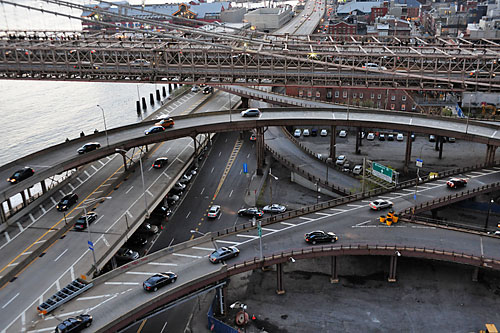
The construction boom in the area around Barclays Center will only exacerbate already existing congestion there, Veconi said.
“There’s a tremendous amount of development here and these projects are adding tens of thousands of residents,” he said. “And they are centered around some of the busiest, most dangerous streets.”
Bill Harris, a member of Community Board 2’s transportation committee, said tolling the free East River bridges is the right thing to do. He laments the fact that he can drive all the way from Brooklyn to his second home upstate and only pay $1.25 in tolls.
“That’s not fair,” Harris said.
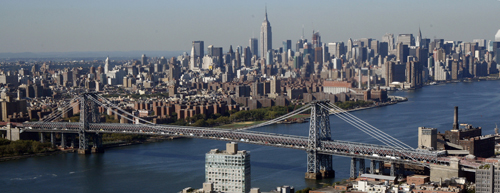
In Williamsburg, the head of the transportation committee of the neighborhood’s community board had a different take, saying that more people taking mass transit and cycling will actually increase traffic.
“It will mean that people will be parking and leaving their vehicles and crossing the bridge in other ways,” said Karen Nieves. “It will add to congestion.”
Nieves is also afraid that the tolls will put a strain on already-stretched small businesses.
“It is going to be extra expensive and hinder doing business in New York,” she said.
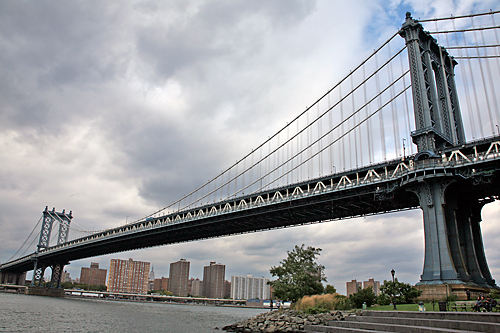
In Bay Ridge, a telecommunications service worker who drives to jobs in Brooklyn and Manhattan daily agreed that the new system would be hard on the little guys trying to make a living.
“The city has increased the cost to guys like me going into the city to work tremendously in the last 20 years — much higher and much faster than everything else as far as traveling in the city goes, and I think it’s just another way to suck more money out of us,” Greg Ahl said. “It reminds me of Bloomberg, who just doesn’t want us driving into the city, and that’s not realistic, because there’s too many people that don’t have a choice.”
— with Danielle Furfaro
and Max Jaeger
